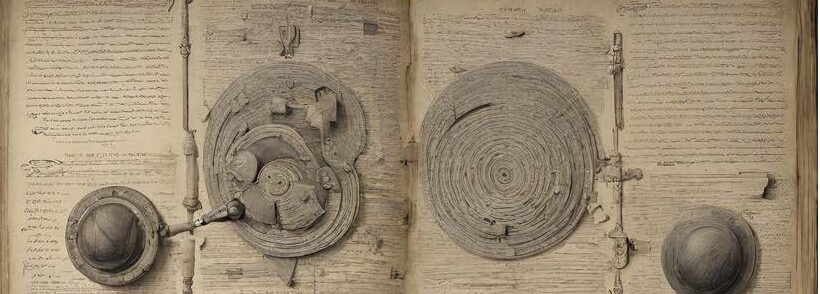A brief dive into the gateway of language

Dictionaries serve as essential reference guides for pronunciation and have played a prominent role in the realm of literature for millennia.
Furthermore, dictionaries extend their influence globally, as they are available for nearly every language, including those from fictional universes like Tolkien’s Elvish language in the Lord of the Rings. This goes to show that, Dictionaries are not static; they evolve alongside our languages, acting as enduring companions in our linguistic journey.
A brief history
The first-ever known version of a dictionary can be traced back to the Akkadian empire in Mesopotamia. However, unlike the modern dictionaries we’re familiar with, this ancient document, dating back to the 7th century BCE, was more like a simple list of words without any detailed explanations. However, it is important to note that later on there were cuneiforms discovered which contained Sumerian and Akkadian words (Read, 2023).


The concept of dictionaries as we know them today started to take shape in Ancient Greece. As the Greek language became more complex, people realized the need for a tool to help them understand and define words.
This marked the beginning of the formal tradition of creating dictionaries. According to Allen Walker Read (2023), Greek lexicons, or dictionaries, began to appear after Pamphilus of Alexandria published a lexicon in the 1st century CE.
Over time, many other Greek lexicons were created, including ones by the Atticists in the 2nd century, Hesychius of Alexandria in the 5th century, and extensive works like Photius and the Suda during the Middle Ages. These lexicons were like early versions of today’s dictionaries, helping people understand and use words effectively.
As Latin gained prominence across European nations, it significantly influenced the development of English lexicography. One noteworthy contribution in this regard was an English-Latin vocabulary resource known as the “Promptorius puerorum,” meaning “Storehouse [of words] for Children.” This valuable resource was published by Pynson in the year 1499, as mentioned.
Over the years, dictionaries underwent improvements and transformations, and the significance of dictionaries in American education became firmly established during the 18th century. In 1751, Benjamin Franklin, in his pamphlet titled “Idea of the English School,” advocated for the idea that every student should possess an English dictionary to assist them in overcoming language difficulties. (Read, 2023).

Dictionaries: Did they really help?
Dictionaries play a crucial role in shaping our understanding of language and how we interpret text. They are particularly valuable for individuals learning a new language, as they provide essential assistance in comprehending and using words effectively. For example, consider the case of English, where a dictionary can help learners discern different meanings of the same word through illustrative examples. This can aid in choosing the appropriate sense of a word in a given context, as demonstrated by Dr. Ece Sarigül in his article (Sarigül, 1999).
From a writer’s perspective, dictionaries serve as tools to diversify one’s vocabulary, reduce word repetition, and enhance the overall quality of written content. I can personally attest to the impact of dictionaries on my writing, as they have allowed me to explore synonyms and learn new words, resulting in the improvement of my own vocabulary.

On a personal note, I firmly believe that dictionaries are invaluable, not only in the academic sphere but also in broader aspects of life. They have been instrumental in my educational journey, especially when learning Arabic and French. The use of dictionaries, translating these languages into English, significantly boosted my comprehension and memorization.
Dr. Ece Sarigül underscores the importance of teaching students how to effectively use dictionaries, emphasizing that with proper training, dictionaries become powerful resources for academic pursuits, helping individuals select the most contextually relevant meaning (Sarigül, 1999)
Furthermore, dictionaries are not confined solely to academic settings; they are vital for gaining a general understanding of the evolving nature of our languages. Language continually adapts and introduces new slang and terminology. For instance, as of September 2023, Merriam-Webster added 690 new words to its dictionary (Price, 2023). Online platforms like Urban Dictionary have proven invaluable for breaking down contemporary slang and understanding the context of online interactions, given that much of our social communication now occurs in digital spaces where such slang is prevalent.
References
Attributed to the Painter of the Woolly Satyrs | Terracotta volute-krater (bowl for mixing wine and water) | Greek, Attic | Classical | The Metropolitan Museum of Art. (n.d.). The Metropolitan Museum of Art. https://www.metmuseum.org/art/collection/search/247964
Grutz, J. W. (2020, November 18). Texting cuneiform. https://www.aramcoworld.com/Articles/January-2020/Texting-Cuneiform
Massonstock. (2009, June 13). //farm7.static.flickr.com/6060/6294709454_04014c2e06.jpg. iStock. https://www.istockphoto.com/photo/book-and-glass-loupe-gm133313561-9654280?phrase=dictionary&searchscope=image%2Cfilm
Oxford Arabic Dictionary : Oxford Languages: Amazon.AE: Books. (n.d.). https://www.amazon.ae/Oxford-Arabic-Dictionary-Languages/dp/0199580332
Price, G. (2023, September 28). Merriam-Webster adds Adds 690 new words to the dictionary (September 2023 update). Library Journal infoDOCKET. https://www.infodocket.com/2023/09/28/merriam-webster-adds-adds-690-new-words-to-the-dictionary-september-2023-update/#:~:text=by%20Gary%20Price-,Merriam%2DWebster%20Adds%20Adds%20690%20New%20Words,the%20Dictionary%20(September%202023%20Update)&text=From%20the%20M%2DW%20Website%3A,being%20given%20to%20existing%20words.
Read, A. W. (1998, July 20). Dictionary | Definition, History, Types, & Facts. Encyclopedia Britannica. https://www.britannica.com/topic/dictionary
Sarigül, E. (1999). THE IMPORTANCE OF USING DICTIONARY IN LANGUAGE LEARNING AND TEACHING. https://doaj.org/article/1f19e458472f443e9ab55bf2eb1b2d4a
The earliest known dictionaries : History of Information. (n.d.). https://www.historyofinformation.com/detail.php?id=2090
Way, Alburtus: (n.d.). AbeBooks. https://www.abebooks.com/first-edition/Promptorium-Parvulorum-Sive-Clericorum-Dictionarius-Anglo-Latinus/31354322906/bd
